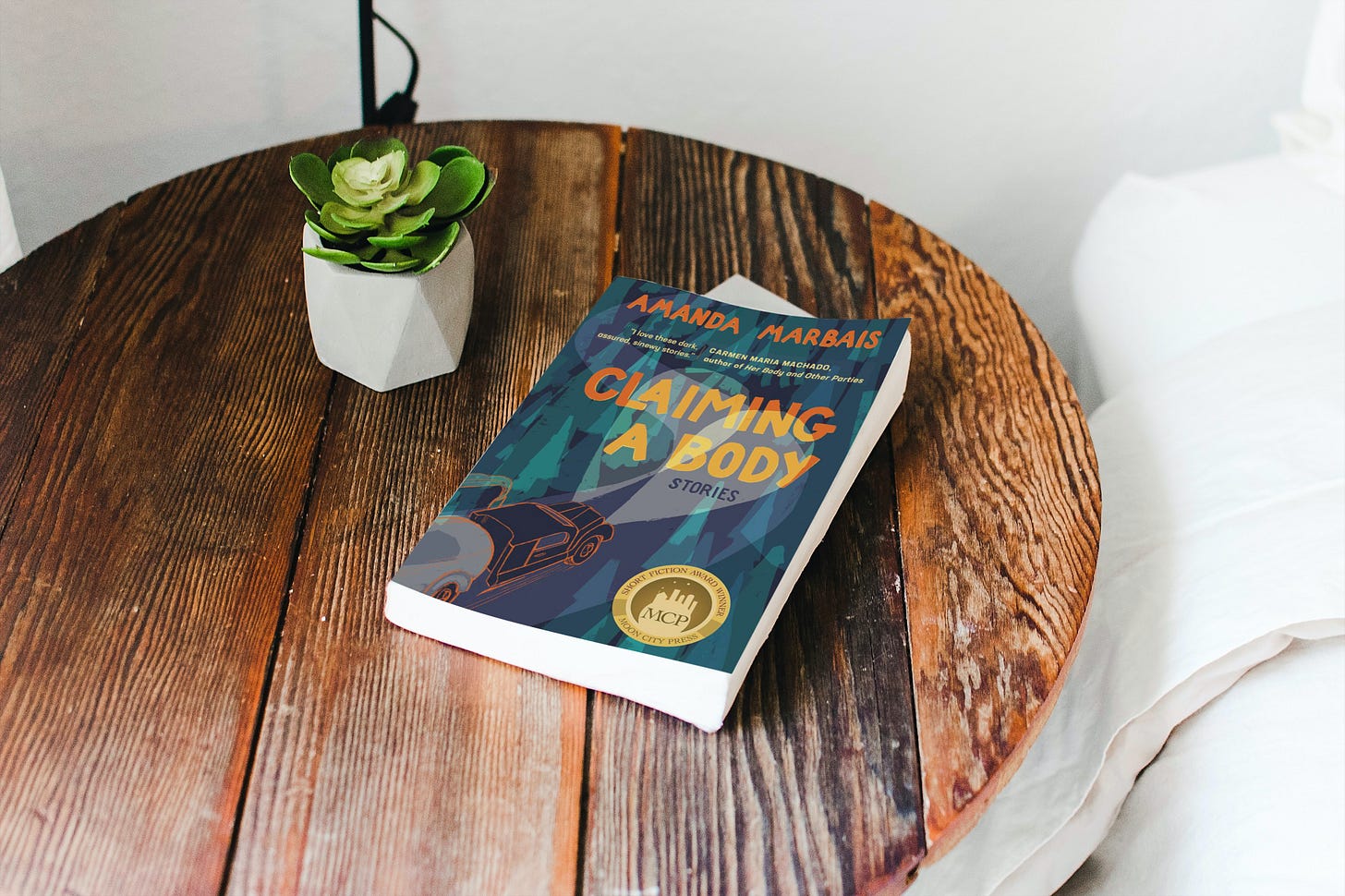THE RELUCTANT HERO
The author of the short story collection Claiming a Body writes about what makes heroes tick.
Amanda Marbais not only writes killer short stories, she teaches literature at Loyola University in Chicago. You can buy her collection on the Blackbird Writers site.
This summer, Jaws celebrated its 50th anniversary as one of the most influential thriller/horror movies of the 20th century. Unfortunately, it also had a well-documented devastating impact on the Great White shark population that creators have since (appropriately) lamented. That’s partially because Jaws is also a monster movie.
Jaws cross-genre storytelling elevated its success. But I want to unpack the broader appeal in its main character Chief Brody, who I view as the quintessential relatable and reluctant hero. To appreciate Brody, we should start with the moment when the horror of his circumstances solidifies into the inciting incident.
In the crime genre, first acts can look unique in terms of pacing. Many begin “in medias res,” with the body in the opening sequence (as happens in the recently popular Your Friends & Neighbors). Sometimes this is the inciting incident. But Jaws has several inciting incidents, each more emotionally devastating than the last, until Brody has to act, which makes it a fascinating and impactful watch.
I would make the argument that most of us are reluctant main characters, slow to act in our own story. In real life, an initial inciting incident is often less dramatic—the moment a teacher says something hurtful to our child, the broken trust of a friend, a discovery about our partner. We have an emotional response but often weigh consequences before we act, usually for more beats than a fictional story (except in the recent movie Black Bag, where the main character weighs the possibility his life-changing informant is wrong with heart-palpitating results in the second act). Regardless, even a small inciting incident heralds a threat to the status quo in life.
In the ubiquitous Save the Cat, the inciting incident is the catalyst in the first 10% of a film / novel. In Story Engineering, the hero has to interpret and respond in order to move into Act II. I would argue that some reluctant (and very memorable) main characters take several inciting incidents (in quick succession) to get off their butts and act. I would also argue this can be relatable, especially when overcoming a fear, phobia, or moral / emotional quandary. It gives the story a deeply human appeal.
In Jaws, Sheriff Brody has a fear of water, and it takes four inciting incidents to get him to board a boat and kill the shark. If you focus on the antagonism of the mayor, the inciting incident is the $3,000 bounty. But if you place the inciting incident with Brody’s fear of water, it comes a few beats later.
The first inciting incident is Crissie’s death, which may be more for the audience. We’re immediately engaged by a common fear of sharks. The second is an argument with the mayor, the third is the bounty. The fourth is the death of a young boy, Alex, and the charge by his grieving mother that it’s Brody’s fault. This finally causes Brody to search his soul and face his phobia of water.
Personal Stakes
I would argue the inciting incident and pursuant decision to act plot point, need to possess a personal component that Crissie and the bounty don’t have. There’s a beautiful sequence after Alex’s death, in which Sheriff Brody’s son mimics his father at the table over dinner, highlighting the profound connection between father and son. (It feels like the debate beat if you follow Save the Cat.) It’s a call and response that’s answered when Alex’s grieving mother takes Brody to task on the dock. After seeing this connection to his own son, Brody can’t say no to his fear anymore, and he launches forward into Act II.
I love this idea of a reluctant hero. It’s familiar. Who among us just jumps on change in their life? Usually, it takes a while to heed the call to action. In general, it’s the job of the thriller to grab you by the throat in the first few pages before allowing you to consider the ramifications of good vs. evil and the complicated aspects of the human condition.
On that note, I want to mention a new book, The Impossible Thing (Grove Atlantic 2025), a crime novel that deals with the cruel (bizarre) world of egg trafficking. It also opens in media res, with a tense scene that makes you supremely uncomfortable with its POV, much like the shark approaching Crissie. You can’t look away, and as a result, are intrigued. It’s another example of the importance and power of the inciting incident.
With multiple perspectives, this novel also arguably has more than one inciting incident. But it’s the high stakes on the first page that keeps us reading. Later, the inciting incident gets us onboard with the main characters Celie, Patrick, and his friend, Weird Nick. The plotting is perfect, and it’s a satisfying read as each character reaches separate climaxes that weave together.
As writers, we’re often taught that the inciting incident is one single large event changing the status quo. But for writers, readers, and humans, it usually takes a lot more drama to get us moving. It’s a thriller writer’s responsibility to grab the reader’s attention, allowing them to plumb the depths of what it takes to push people into changing their lives.
Amanda Marbais’s short fiction has appeared in Hobart, Joyland, and McSweeney’s. She was featured in Electric Literature’s Recommended Reading series and was shortlisted in The New York Times Book Review for her debut short story collection Claiming a Body.





Fantastic analysis, Amanda. The reluctant hero is a great figure because readers can relate to their internal battle with bravery. But when the hero finally does come around, it makes them all the more courageous - because we know that courage was hard-won!
Great post, Amanda! I've actually never seen Jaws and plan to go see it when the 50th anniversary comes out in the theaters. Should be fun and now I'll be watching for all four inciting incidents. :) Thanks also for the book recommendation. I will have to check that out.